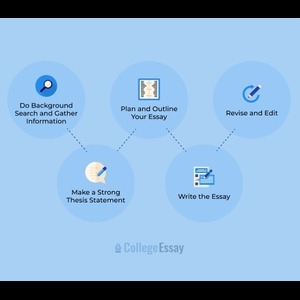Writing analytical essays can be hard, leaving many students feeling stressed and confused.
Without knowing how to analyze properly, it's easy to end up with weak arguments and bad grades.
But don't worry, I've got a solution for you!
In this guide, you'll learn the best tips and tricks for writing top-scoring analytical essays. Let's dive in and make this easier for you!
What is an Analytical Essay?
An analytical essay is a type of academic writing where you explore a topic deeply, look at it critically, and give thoughtful insights. Instead of just summarizing or giving your opinion, you use evidence and logical reasoning to analyze the topic thoroughly.
The Purpose of Writing an Analytical Essay
Writing an analytical essay has several benefits:
- Critical Thinking: It helps develop your ability to think deeply and analyze information.
- Understanding: It helps you understand the topic better by exploring complex ideas and hidden meanings.
- Communication: It improves your ability to express your thoughts clearly and effectively.
- Evidence-Based Analysis: It teaches you how to support your arguments with credible evidence.
How to Structure an Analytical Essay?
An analytical essay usually follows a specific structure. It can mostly follow a 5-paragraph essay format:
|
Analytical Essay Structure
Introduction:
- Start with an interesting hook to grab the reader's attention.
- Give a clear thesis statement that states your main argument or analysis.
Body Paragraphs:
- Start each paragraph with a topic sentence introducing the main point.
- Support your analysis with evidence like quotes, examples, or data.
- Use transition words to smoothly move between paragraphs.
Analysis and Interpretation:
- Deeply analyze the topic, looking at different aspects or themes.
- Break down the topic into smaller parts and explore their meaning.
- Provide insightful interpretations backed by evidence.
Counterarguments (if needed):
- Address opposing viewpoints related to your analysis.
- Refute them with strong evidence and reasoning.
- Acknowledge valid points made by the other side but reinforce your argument.
Conclusion:
- Summarize your main points and restate your thesis.
- Provide a summary of your analysis and its importance.
- Offer broader insights or implications related to the topic.
- End with a thought-provoking statement or call to action.
|
Remember to keep your essay clear and logical. Use topic sentences and transitions to connect your ideas.
How to Write an Analytical Essay in 5 Steps?
Analytical essay writing might seem tough, but you can handle it step-by-step:
Step 1: Understand the Prompt and Gather Information
Here's what you should do first:
- Read and understand the essay prompt or question carefully.
- Identify key terms and instructions.
- Research the topic thoroughly to gather relevant information and sources.
Example: If the essay prompt asks you to analyze the impact of technology on society, read the prompt carefully, identify key terms like "impact" and "society," and research using credible sources.
Step 2: Craft a Strong Thesis Statement
Follow these steps to create a strong thesis statement:
- Write a clear and concise thesis statement that captures your main argument or analysis.
- Make sure your thesis is specific, debatable, and outlines your essay's direction.
Example: If analyzing the negative effects of technology on social interactions, your thesis might be: "While technology enhances communication, its overuse has led to a decline in face-to-face interactions, negatively affecting social relationships."
Analytical Essay Types
Analytical essays come in different types. Here are some common ones:
- Literary Analysis Essays: These analyze literary works like novels, poems, or plays, looking at themes, characters, and writing styles.
- Rhetorical Analysis Essays: These examine how authors or speakers use techniques to persuade their audience, such as ethos, pathos, and logos.
- Critical Analysis Essays: These evaluate specific works like articles or papers, assessing strengths and weaknesses and providing an informed evaluation.
Step 3: Plan and Outline Your Essay
Planning is key to a good essay. Here’s how to outline:
- Organize your thoughts and create an outline highlighting the main points.
- Arrange your ideas logically for a smooth flow.
- Create a separate paragraph for each main idea or argument. For more details, check out our analytical essay outline blog.
Example: Your outline might include the introduction (hook, thesis, background info), body paragraphs (negative impact on interactions, examples, analysis), and conclusion (summary, restated thesis, closing statement).
Step 4: Write the Essay
When writing, keep these steps in mind:
- Start with an engaging introduction that hooks the reader and introduces your topic and thesis.
- In the body paragraphs, present and support your arguments with evidence and analysis.
- Analyze the evidence, showing its significance and connection to your thesis.
- Use topic sentences, transitions, and clear language to maintain clarity.
- Address counterarguments and refute them with strong reasoning.
- Conclude by summarizing your main points, restating the thesis, and providing a thoughtful closing statement.
Example: In the introduction, start with an anecdote about people glued to their devices. In the body, provide examples like fewer family conversations or in-person gatherings, supported by evidence like studies or statistics.
Step 5: Revise and Edit
Revise your essay with these steps:
- Review for clarity, coherence, and logical flow.
- Check for grammar, spelling, and punctuation errors.
- Ensure your analysis is well-supported and persuasive.
- Get feedback from peers, teachers, or writing centers for improvement.
Analytical Essay Examples
Here are some examples to help you write strong essays:
|
Analytical Essay For High School
Title: The Role of Social Media in Shaping Teenagers' Self-Image
Social media is a big part of teenagers' lives, affecting their self-image and how they see themselves. This essay looks at how social media shapes teens' ideals, behavior, and overall well-being.
Social media creates unrealistic beauty standards by showing filtered and edited images, leading teens to compare themselves and feel inadequate.
It also fosters a culture of validation where likes and comments become measures of self-worth, impacting self-esteem and mental health.
Moreover, the essay explores how social media influences behavior, from the desire for validation to the pressure to conform to trends.
Despite some positive aspects, the overall impact on teenagers' self-image is concerning and needs attention.
Example Analysis: "The prevalence of social media among teenagers has significantly impacted their self-image. Social media platforms often present idealized and unrealistic portrayals of beauty and success, leading to increased pressure and self-comparison among teenagers. Studies have shown a correlation between social media use and lower self-esteem, as teenagers constantly compare themselves to the curated and often unattainable images they see online. The desire for validation through likes and comments further exacerbates this issue, as teenagers seek external approval to boost their self-worth. Consequently, the negative effects of social media on teenagers' self-image are evident, and it is crucial to address these issues to promote healthier self-perception and mental well-being among young individuals."
|
|
Check out 'Analytical Essay Examples' blog for more sample analytical essays for inspiration!
Analytical Essay Topics
Choosing an interesting theme or specific topic for your essay is essential. If you want readers to read and enjoy your work, make sure that you select an exciting analytical essay topic.
Following is the list of some engaging topics for more ideas check out our analytical essay topics blog.
Analytical Essay Topics About Psychology
- Explore the Influence of Childhood Experiences on Adult Attachment Styles
- Examine the Impact of Social Media on Mental Health: Patterns and Trends
- Investigate the Psychological Effects of Color in Marketing and Advertising
- Evaluate the Link Between Sleep Deprivation and Cognitive Function
- Analyze the Psychological Factors Contributing to Procrastination
- Examine Personality Types and Coping Mechanisms in Stress
- Study the Impact of Parental Involvement on Academic Achievement
- Investigate the Role of Genetics and Environment in Anxiety Disorders Development
- Analyze the Influence of Music on Mood and Emotional Well-being
- Explore the Psychology of Decision-Making: Cognitive Biases and Rational Thinking
Analytical Essay Topics About Pop Culture
- Examine the Impact of Social Media on Shaping Modern Pop Culture Trends
- Explore the Cultural Significance of Memes in Shaping Online Discourse
- Investigate the Influence of Celebrity Endorsements on Consumer Behavior
- Evaluate the Evolution of Gender Representation in Popular Music Videos
- Analyze the Cultural Implications of Streaming Services on Traditional Media
- Study the Role of Fashion Influencers in Defining Contemporary Style Norms
- Examine the Intersection of Pop Culture and Political Activism in the Digital Age
- Explore the Phenomenon of Fandoms and Their Influence on Popular Culture
- Evaluate the Role of Fan Fiction as a Primary Source in Pop Culture Analysis
- Investigate the Impact of Virtual Influencers on Beauty Standards and Consumer Behavior
Analytical Essay Topics About Art and History
- Examine the Symbolism and Cultural Context in Renaissance Artworks
- Investigate the Role of Political Propaganda in Art During the Cold War
- Analyze the Evolution of Portraiture in Different Art Movements
- Explore the Impact of Colonialism on Indigenous Art and Cultural Expression
- Study the Use of Religious Themes in Baroque Art and Its Social Commentary
- Evaluate the Influence of Art on Historical Memory and Collective Identity
- Analyze the Intersection of Art and Technology in Contemporary Installations
- Examine the Cultural Appropriation Debate in Modern Art Practices
- Analyze the Depiction of Historical Events in 19th-Century Landscape Paintings
- Explore the Influence of Ancient Egyptian Art on Contemporary Design and Imagery
Writing an analytical essay requires a thoughtful approach, attention to detail, and a strong grasp of critical thinking.
By implementing these strategies, you will not only engage your readers but also demonstrate your ability to analyze complex subjects, evaluate evidence, and present well-reasoned arguments.
Need a helping hand? CollegeEssay.ors's Essay Writer AI will craft a custom essay tailored to your needs.
However, if you are looking for professional help, and in search of a site that writes essays for you, let their essay helper deliver top-quality essays.
Take the stress out of writing and achieve academic success. Click here to get started with their analytical essay writing service today!



